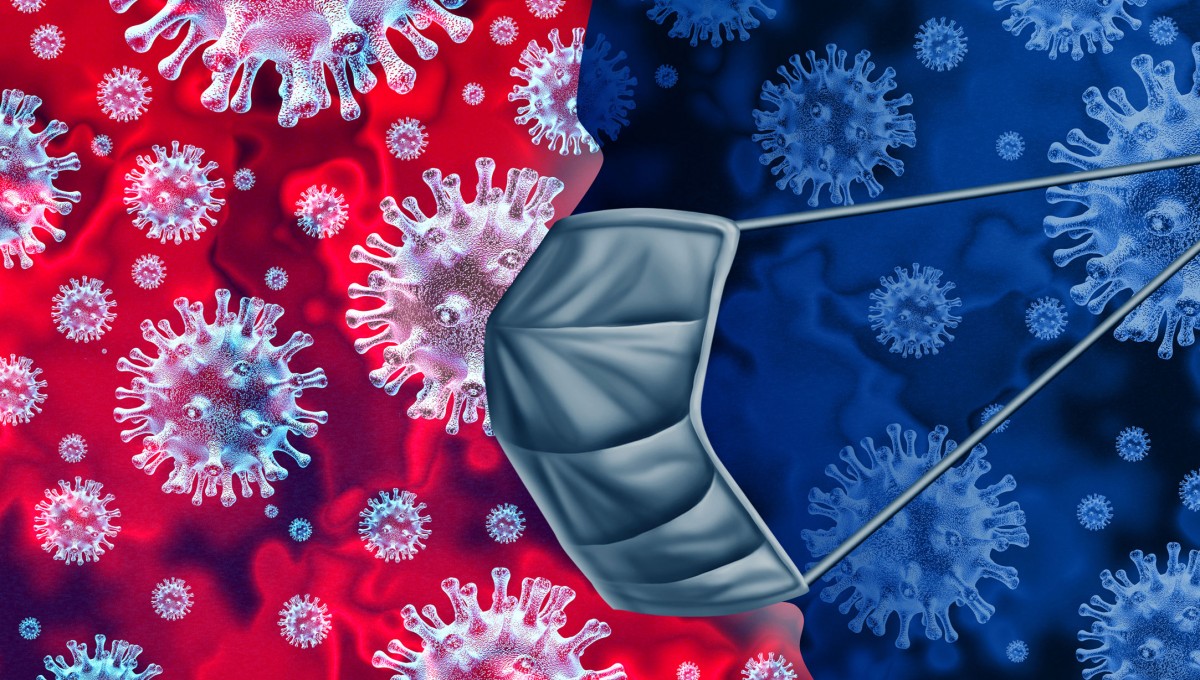RIO DE JANEIRO, BRAZIL – For the first time in eight months, Brazil sees Covid-19 cases slowing down steadily. Since November last year, the country had been in a stable or accelerated stage, but this picture has reversed now.
The data comes from the Covid acceleration monitor, from “Folha de S. Paulo”. The platform measures the variation of newly infected people in the last 30 days, based on a statistical model developed by Renato Vicente and Rodrigo Veiga from São Paulo university USP.
The model compares the moving averages for seven days in this period in cities with more than 100,000 inhabitants, giving more weight to the most recent data. In each location, the pandemic is classified as “initial”, “accelerated”, “stable”, “decelerated”, or “reduced”.
As of April 7, the country was at a stable plateau, when there are still many people being infected, but the number of new daily cases does not change or grow stronger. Last Thursday, July 15, however, it entered the decelerated stage, which means that infections are steadily falling.
“The reduction is related to vaccination because it matches the age groups that have been immunized,” says Paulo Lotufo, who directs the clinical and epidemiological research center at USP.
The decrease in cases occurs even with the increase in the circulation of people around the country. Currently, the flow is almost equal to the period before the pandemic, according to data from Google that considers the movement in commerce and leisure.
On June 22 this year, Brazil registered a moving average of 79,000 new daily cases at the peak of infections. On Thursday, when it entered the decelerated plateau, the number was at 42,000. The same occurred with deaths, which dropped from 3,112 at the peak, on April 11, to 1,243 on Thursday.
In recent weeks, the states that went from stable to decelerated were Bahia, Mato Grosso do Sul, Paraíba, Rio de Janeiro, Rio Grande do Norte, Rondônia, Rio Grande do Sul, Tocantins, and the Federal District, contributing to the improvement in the national ranking.
The most populous state in the country, São Paulo, is still stable but has registered a drop in recent days and is heading to enter the decelerated stage. No unit of the Federation has the pandemic at an accelerated level.
“Since the beginning, vaccines were made to decrease deaths and hospitalizations. Now we see that they even have an impact on transmission”, says Lotufo, remembering the results of the Butantan Institute study done in the town Serrana, near Ribeirão Preto in São Paulo state, released in May.
The immunization of almost all adults with the two doses of Coronavac caused the symptomatic cases to drop 80% in the city. There was even a reduction in infections in children and teenagers, unvaccinated, while neighboring cities, such as Ribeirão Preto, registered an increase.
Outside Brazil, research studies point in the same direction. Last month, a survey published in the scientific magazine Nature indicated a drop of more than 60% in transmission after the first dose and 80% after the second dose among 385,000 residents of the United Kingdom who received vaccines from AstraZeneca and Pfizer.
In another study, a British government agency estimated that immunization prevented at least 8 million infections in that country of 65 million people. The vaccine, however, does not guarantee that a person will not get infected or transmit the disease, so it is necessary to continue wearing a mask and practicing social distancing.
What is not yet clear is the impact of the Delta variant, which was initially detected in India and is already circulating in Brazil. Besides, there is concern about the possible emergence of other variants, as occurred with the Gamma strain identified in Manaus earlier this year.
“The fear now is the variants and this feeling that it has already passed. The numbers are decreasing, but we are still at a level worse than in 2020. If people relax and managers encourage events to show that it is over, it can increase again,” says epidemiologist Diego Xavier from Fiocruz.
In the United States, which already has 59% of its adult population fully vaccinated, the number of new cases more than doubled in the last 14 days – the deaths had a slower growth of 9%. The Delta variant is becoming predominant there and has mainly affected people who have not yet been immunized.
According to Xavier, something similar is expected to occur in Brazil. “We can already see the difference in the curves of places that have not adhered to the vaccine in the US, with localized outbreaks. We are expecting that in Brazil the same happens, with more cases only in a localized way in cities that have little coverage of the second dose, for example”, he says.
Vaccination in Brazil started six months ago and had only reached 26% of the adult population one month before the peak of cases, considering those vaccinated with only one dose or a single dose. The percentage doubled to 56% this week.
“We can’t miss this opportunity again to look at the most vaccinated countries and take action before things get worse, as we did the whole pandemic,” the researcher warns.


